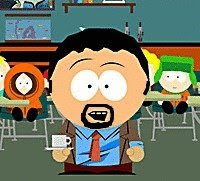Three things I learned: DFG's are a socieconomic grouping of schools in each district using a statistical technique called principal components analysis, the state of NJ requires curriculum to have pacing, different levels of materials, benchmark assessments, and modifications, and I learned that curriculum should not be set in stone, but always a work in progress.
Two things I found interesting: the impact of digital fingerprints and the push for 21st century skills
One question: who decide's whether a curriculum is good or not, and what qualifications does that person need to have?
Comment on Erin's question: How do you make it all work? How do you teach every subject, address all of the NJCCCS, and get it all in within a 10 month time period? With pullouts, differentiated lessons, and constant distractions to your schedule, how do you get it all in and make sure you're reaching every child?
The answer to that question is simple: Life happens, you adjust, you shift, and you modify plans. Integrate content as much as possible- and that's the way life works. In school educators typically isolate subject matter, but in actuality it is intertwined. Every subject impacts the other or plays a part. For example, in social studies I can combine reading a book about colonial life with writing a paper about the time period and talk about currency (Math) and discuss the importance of agriculture on the colonies (Science).
Thursday, April 16, 2009
Subscribe to:
Post Comments (Atom)


Mr.j it's me Joshua aalampour from ya fourth grade. My blogger name is Jared I followed you on blogger
ReplyDelete